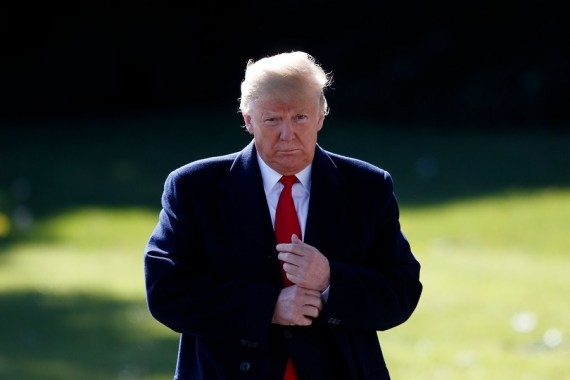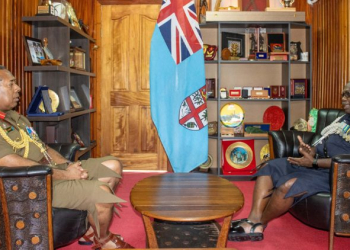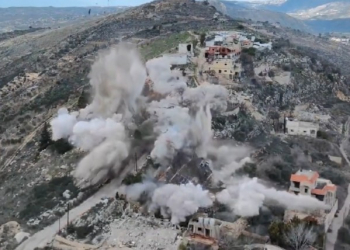Washington: When Florida Judge Aileen Cannon appointed Raymond J. Dearie, a former Chief Federal Judge in New York, to sort through more than 11,000 documents – including classified materials – that FBI agents seized from former president Donald Trump’s Florida residence last month, jurists across both the Republican and Democrats side hailed the move.
The 78-year-old Dearie, a former Chief Federal Judge in New York and the then President Ronald Reagan appointee, was described by his peer group lawyers and colleagues as an exemplary jurist who is well suited to the job of special master, having previously served on the Foreign Intelligence Surveillance Court (FISA), which oversees sensitive national security cases.
The Department of Justice also said he was acceptable to them after Judge Cannon rejected two candidates proposed by them.
In 2015, Dearie took the unusual step of reducing the prison sentences of three convicted Canadian terrorists, saying he had been “haunted” by the case and his growing sense that their sentences were unfair. Under federal law, Dearie had been required to sentence the men to 25-year terms for conspiring to acquire missiles on behalf of the Tamil Tigers, a rebel group fighting the government of Sri Lanka. He later cut those sentences to 15 years.
While the DOJ has been hit by Florida Judge Cannon’s ruling to slow down investigation into Trump’s classified documents case until Dearie reviews the documents in public interest to prevent reputational harm with a possible indictment of the former President, the DOJ has continued to maintain that a special master is legally unnecessary and should not be charged with reviewing any of the 100 or so seized documents marked as classified.
Appointing a special master to review these documents, prosecutors argued in numerous court filings, would slow down a criminal investigation into the potential mishandling of classified information and could pose a national security risk, according to multiple reports in the media outlets.
Here’s everything you need to know about Dearie and what he will be doing in this high-profile and unusual investigation.
What is a special master? A special master is an impartial outside expert who can essentially be viewed as a judge’s helper, said David R. Cohen, an attorney and longtime special master. In theory, the special master can help with whatever a judge needs.
In this case, Cannon appointed a special master to sort through the documents seized from Mar-a-Lago on August 8 to see if any should be shielded from criminal investigators because of attorney-client or executive privileges.
How did Judge Cannon choose Dearie? When Cannon granted Trump’s request to appoint a special master earlier this month, she asked the Justice Department and Trump’s legal team to jointly submit a list of potential candidates. In a subsequent joint filing, the Justice Department named two judges as candidates. Trump’s side proposed a lawyer who is not a judge, and Dearie. Trump’s lawyers then told the judge they did not believe any of the Justice Department’s candidates would be suitable special masters. The Justice Department said they thought Dearie would be acceptable. Days later, Cannon named Dearie for the high-profile job.
Is Dearie still working as a judge? Yes, Dearie still serves as a judge in Brooklyn federal court, albeit on senior status, which means he can take a reduced caseload if he chooses. He has also recently signalled that he plans to leave the bench. It is not immediately clear if the appointment will speed his departure from Brooklyn federal court or if court administrators will work out some other accommodation for the unusual dynamic of a judge appointing another judge a special master.
What will he do as a special master in this case? The Justice Department and Trump’s lawyers have held drastically different positions on what the special master should do in this case. Trump wants the special master to search through all the seized documents – including the classified ones – to see if any are protected by attorney-client or executive privileges and should not be used in the investigation.
On the other side, the Justice Department has questioned whether Trump, who is no longer President, can even invoke executive privilege – a power that Presidents can assert to shield communications from courts, Congress, or the public.
Either way, the Justice Department did not want classified documents to be part of the special master review, saying that privilege would not apply to them or to the unclassified documents, and that delaying investigators’ access to those sensitive documents could pose national security risks.
Ultimately, Cannon ruled in Trump’s favour. She also denied a bid by prosecutors to allow them to use the seized material in their ongoing criminal investigation before Dearie conducts his review.
How long does Dearie have to complete the job? Cannon ordered Dearie to complete his review by November 30. She said he should prioritise sorting through the classified documents, though she did not provide a timeline as to when that portion must be completed.
The Justice Department had asked in a previous court filing for the review to be completed by October 17. And Trump’s lawyers had said a special master would need 90 days to complete a review.
Does Dearie have the necessary clearance to sift through these highly classified materials? Because Dearie previously served on the FISA court, it will probably not take much time or effort to get him authorised to review the classified material, and he may not have to travel far to look at them. New York City has a number of federal facilities in which Dearie could review highly classified material, which is important since the storage and safekeeping of such documents is the crux of the case.
Can Dearie get help for his review? In theory, yes. Special masters typically have others help them review documents. But in this case, staff assistance could be complicated by the 100 classified documents, and whether any potential assistants have the necessary security clearances. It is possible that Dearie could end up reviewing that material on his own, and hiring others to help him with the non-classified documents.
Now what? The Justice Department is expected to file an appeal to the US Court of Appeals for the 11th Circuit in Atlanta. Depending on what part of Cannon’s decision the government challenges, the appeal may or may not interfere with the special master’s review.
Once Dearie completes his review, he would deliver his recommendations to Cannon on what documents should be shielded from investigators. It’s up to Cannon to decide whether she will follow those recommendations.
(IANS)




















